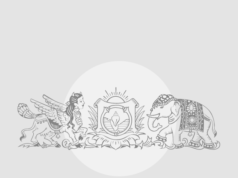কৌশল, ডিকোডেড: এটি আসলে কী (এবং কীভাবে এটি আয়ত্ত করা যায়)

“You need to think more strategically; you need to be more strategic!” This is one of the most common, yet least helpful, pieces of feedback professionals receive. It sounds smart, it sounds wise, and it even sounds important. But ask people, including those who offer the advice, what it actually means, and you’re likely to get a range of different answers. I’ve spent more than two decades working with leaders, entrepreneurs, and teams around the world, helping them become more strategic in how they think, act, and make decisions. Along the way, I’ve seen the same frustration arise again and again: People know strategy matters but don’t know “how to do it.” The good news? Strategy—and being strategic—isn’t some arcane skill reserved for those who sit in the boardroom or graduate from business school. It’s a learnable set of habits that anyone can apply to make a greater impact, both in their work and more broadly, in their lives. At its heart, though, strategy is about making meaningful choices. It requires zooming out to see different perspectives, navigating complexity and uncertainty, determining what matters most, and aligning actions accordingly. Strategy is both a skill and a mindset, a lens and a habit. It’s a way of scanning your environment with curiosity, being mindful of what you are seeing—and what you aren’t—and choosing where to focus your limited time, energy, and resources. Three myths about strategy Myth 1: Strategy is only for senior leaders. Many climbing the career ladder put off learning strategy until they reach the top. By then, it’s often too late. You’ll miss that promotion or job offer, or quickly flounder when you’re tasked with “developing a strategy for Market X and Service Y.” The sooner you develop your strategic muscle, the more options you’ll have, the better decisions you’ll make, and the greater your impact will be. Myth 2: Strategy requires brilliant intellect. Many of the most strategically effective people I’ve worked with aren’t the most credentialed, or necessarily the most academically accomplished. Instead, they are curious, listen deeply, and are genuinely collaborative. They spot opportunities and connect dots that others miss. Instead of IQ points, strategy is about awareness, asking questions to promote more conscious responses, connecting intentions to outcomes, making meaningful choices—and practice. Myth 3: Strategy is about predicting the future. Actually, it’s about navigating uncertainty. It’s learning how to make solid decisions and commit to action even when the road ahead is hazy—or worse. So what does being a strategist actually look like? Here’s what I’ve learned from thousands of conversations over my career: Being strategic is about three interlocking disciplines and their associated habits: awareness, curiosity, and intentionality. Awareness: Understand your context. Who are the stakeholders? What’s changing and how fast? Where are the hidden pressures and opportunities? Curiosity: Don’t just accept the first answer or the obvious explanation. Check in. Challenge. Listen intently. Invite feedback. Connect ideas across boundaries. Intentionality: Make clear, meaningful choices. Prioritize. Decide not just what you should do, but what you shouldn’t do—and stick to it. These habits aren’t just applicable to leadership roles. It applies to your career decisions, your relationships, and even your personal goals. Why strategy is crucial for your well-being There’s another reason to master strategy: It reduces burnout. In a world full of endless notifications, shifting priorities, and constant change, it’s easy to exist in a near-constant reactive mode. Being strategic gives you a sense of agency. When you think strategically, you stop doing distracting activity with impact. You say no more often. You get comfortable with ambiguity, and you’re OK with not having all the answers. It’s not just good for business, it’s also good for your health and well-being. How to start being more strategic today Here are three simple things you can do this week to build your strategic muscle: Zoom in before you zoom out. Before your next meeting or decision, take five minutes to map out the big picture: What’s really at stake? Who will win and who will lose? What are the potential consequences? What are the long-term implications? Ask better questions. Instead of “What should we do?” try reframing the situation: “What problem are we really trying to solve?” “What would success look like in 12 months–and how would we measure it?” “What are we assuming, and what if those assumptions are wrong?” “What if we do nothing?” Block out thinking time. Make frequent appointments with yourself, even if only for 20 to 30 minutes, to meditate, look for patterns, and reprioritize as needed. Treat it as a dedicated encounter with your future self. These small shifts add up. Over time, you’ll notice that you’re less reactive, more clear-headed, more confident, and more capable of influencing outcomes. People will start seeking out your perspective not just on the task at hand, but on the bigger strategic, longer-term issues and opportunities. Strategy is meant—for everyone—it’s simply this: the skill of making better choices in the face of uncertainty—choices that align with your goals and values (and those of your team and organization) and the impact you want to create. It’s a set of skills and mindsets that anyone can learn and develop at any stage of their career. Once you start practicing it, you’ll see the benefits everywhere—at work, at home, and in your clarity, control, and confidence. My call to you is simple: Treat “being strategic” as an everyday practice, not some distant aspiration or skill reserved for other people. Start with self-awareness, curiosity, and intentionality. Because strategy isn’t a secret. It’s a way of showing up in the world, and it’s available to you today. The extended deadline for Fast Company’s Most Innovative Companies awards is tonight, October 14, 11:59 PM PT. Apply today. (tags for translation) leadership
প্রকাশিত: 2025-10-19 19:20:00
উৎস: www.fastcompany.com











